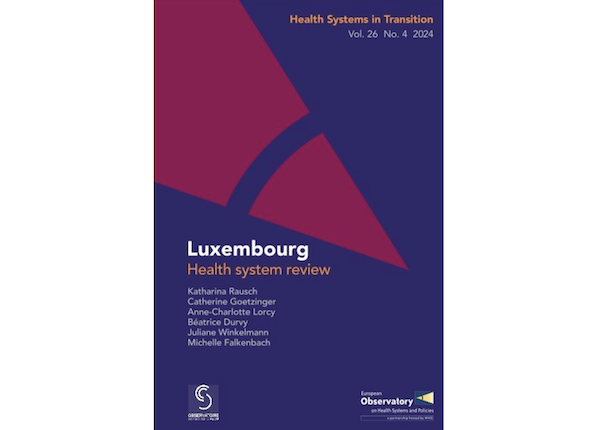
On Wednesday 26 November 2025, Luxembourg’s National Health Observatory announced the publication of the French edition of the 2024 review of the national health system, released as part of the international Health Systems in Transition (HiT) series in collaboration with the European Observatory on Health Systems and Policies.
The National Health Observatory noted that the publication forms part of the international Health Systems in Transition (HiT) series, which provides detailed analyses of the organisation, functioning and recent reforms of health systems across the World Health Organization (WHO) European Region. These reviews are prepared by national experts, in Luxembourg’s case, the ObSanté team with support from additional contributors, in collaboration with the European Observatory, following a standardised structure that enables meaningful comparison between countries.
According to the National Health Observatory, the French-language edition was produced on the basis of the original English version to support wider accessibility, helping to facilitate its use by the general public, health professionals and institutional stakeholders in Luxembourg.
The publication outlines key dimensions of the health system, including organisation and governance, financing, physical and human resources, and service delivery, such as patient pathways and the provision of care.
It also provides an overall assessment of Luxembourg’s health system, examining areas such as governance, accessibility, financial protection, quality of services, care integration, health outcomes and efficiency, as well as presenting major reforms already implemented and perspectives for future development.
The publication “Luxembourg: Health System Review” offers an in-depth examination of national health structures, recent and planned reforms, and policy developments. It also highlights the strengths and weaknesses of the Luxembourg health system. Although the country benefits from a mandatory health insurance scheme covering a wide range of services for most of the population, the report notes that certain barriers persist for vulnerable groups, particularly due to administrative hurdles and financial constraints.
According to the review, Luxembourg’s health system demonstrates several strong points but continues to face notable challenges. While overall health outcomes are positive, socio-economic inequalities and health-risk behaviours remain areas of concern. The centralised organisation of healthcare infrastructure ensures broad coverage; however, the system’s significant dependence on a workforce trained abroad raises questions regarding the long-term sustainability of service provision and the quality of specialised care.
The merger of government departments to form the Ministry of Health and Social Security (M3S) is described as a step toward greater coherence in the planning and financing of healthcare. Nevertheless, the publication stresses that, despite substantial investment, further progress is required to strengthen health promotion and prevention, enhance efficiency and optimise budget allocation.
The full English-language version of the review is available here.








